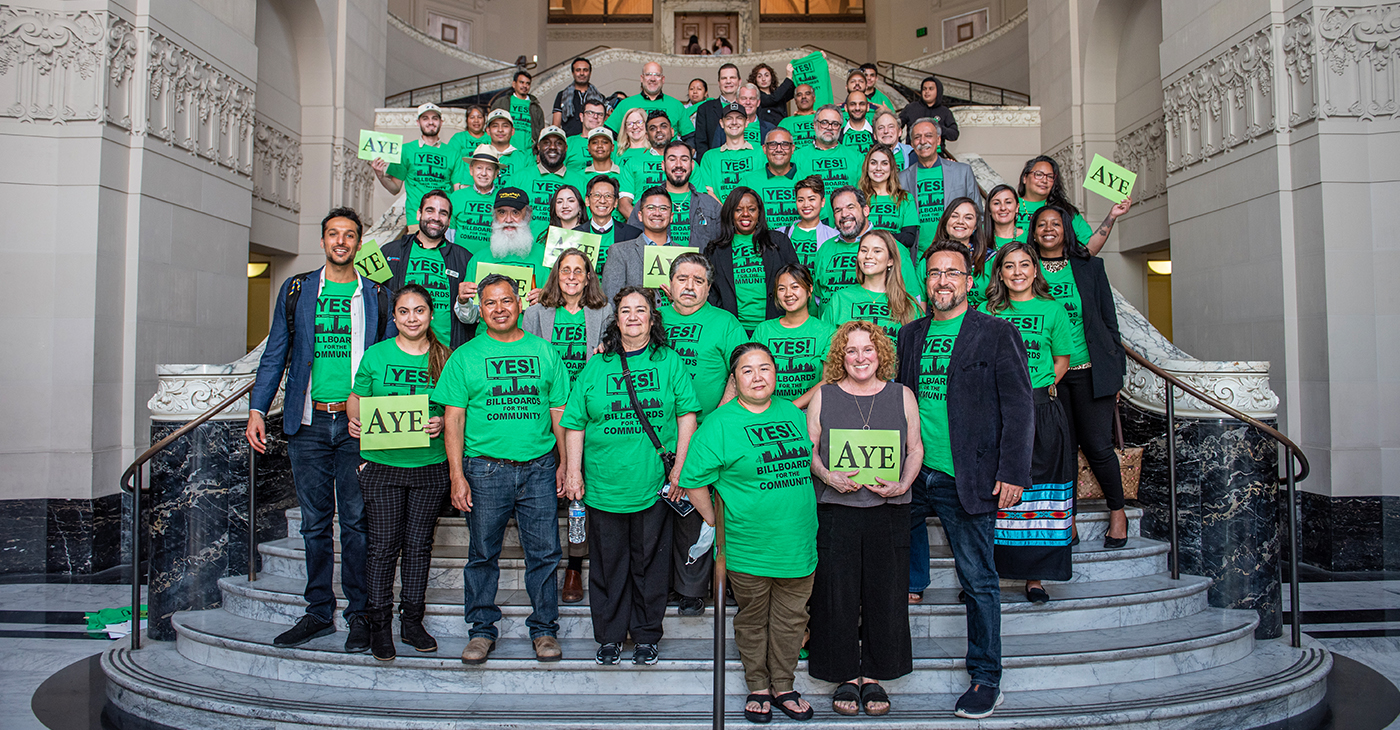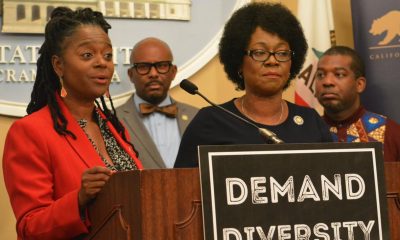Business
Netflix Supports Charter Acquisition of Time Warner Cable
Tali Arbel, ASSOCIATED PRESS
NEW YORK (AP) — Netflix, a vocal opponent of Comcast’s failed bid for Time Warner Cable, supports Charter’s quest to do the same in a deal that would create another cable giant.
In a filing with the Federal Communications Commission Wednesday, the online video company said it supports the deal because Charter says it won’t charge companies to connect to its network and reach its customers.
Spread across a larger Charter with 19.4 million Internet customers, that would be a “substantial public interest benefit” and would help get online services to consumers and promote innovation, Netflix said.
Charter’s policy and Netflix’s support of it could help sway regulators to approve the Charter deal after the Comcast-Time Warner Cable transaction fell apart in April under pressure from regulators.
Charter Communications Inc. wants to buy Time Warner Cable and Bright House for $67.1 billion to become the country’s No. 3 traditional TV provider and the second-largest home Internet supplier after Comcast.
“It’s certainly a positive for closing the deal, absolutely,” said BTIG analyst Rich Greenfield, and a “nice win for Netflix.” But he said there are still roadblocks to regulatory approval for Charter because the government is concerned about the lack of competition in the broadband market.
A spokeswoman for the Federal Communications Commission declined to comment because the transaction was under review.
After the Comcast deal collapsed because regulators worried that it could impede online video competitors while giving Comcast too much power over the nation’s high-speed Internet access, Charter is trying to position itself as a good Internet actor.
Charter’s updated policy, which continues to let companies connect to its network without paying until the end of 2018, goes into effect “immediately,” said spokesman Alex Dudley. It won’t be extended to Time Warner Cable and Bright House properties until those acquisitions close.
Why does this matter? Netflix Inc. fought with Comcast and other big Internet providers over these commercial arrangements and in 2014 ended up paying companies including Comcast, Verizon, Time Warner Cable and AT&T to connect directly to their networks after congestion issues hurt video quality for Netflix customers. Comcast and some other broadband providers had argued then that Netflix should be responsible for some of the cost of handling the traffic generated by its popular service. According to Internet research firm Sandvine,Netflix watchers account for 36.5 percent of traffic downloads on fixed networks in North America during peak evening hours.
The FCC has been concerned about disruptions to users’ online experience stemming from fights over these arrangements. It now has the power to hear disputes between Internet providers and companies according to its “net neutrality” rules that went into effect in June.
In an interview with The Associated Press, Netflix CEO Reed Hastings said he thought Charter’s policy would help pressure other big Internet service providers into also letting companies connect to their networks without paying.
In another bid to endear itself to government regulators, Charter has said that it will submit disputes over these commercial Internet deals to the FCC. It has also promised to roll out faster Internet with no data caps for Time Warner Cable and Bright House customers and said it will abide by the government’s net neutrality rules against blocking and slowing down Internet traffic and creating special paid fast lanes for content.
—
AP Technology Writer Michael Liedtke contributed to this report from San Francisco.
Copyright 2015 The Associated Press. All rights reserved. This material may not be published, broadcast, rewritten or redistributed.
###
Activism
Oakland Post: Week of July 24 – 30, 2024
The printed Weekly Edition of the Oakland Post: Week of July 24 – 30, 2024

To enlarge your view of this issue, use the slider, magnifying glass icon or full page icon in the lower right corner of the browser window. ![]()
Activism
Oakland Post: Week of July 17 -23, 2024
The printed Weekly Edition of the Oakland Post: Week of July 17 -23, 2024

To enlarge your view of this issue, use the slider, magnifying glass icon or full page icon in the lower right corner of the browser window. ![]()
Activism
Community Celebrates Historic Oakland Billboard Agreements
We, the Oakland Billboard Economic Development Coalition, which includes Oakland’s six leading community health clinics, all ethnic chambers of commerce, and top community-based economic development organizations – celebrate the historic billboard agreements approved last year by the Oakland City Council. We have fought for this opportunity against the billboard monopoly, against Clear Channel, for five years. The agreements approved by Council set the bar for community benefits – nearly $70 Million over their lifetime, more than 23 times the total paid by all previous Clear Channel relocation agreements in Oakland combined.

Grand Jury Report Incorrect – Council & Community Benefit
We, the Oakland Billboard Economic Development Coalition, which includes Oakland’s six leading community health clinics, all ethnic chambers of commerce, and top community-based economic development organizations – celebrate the historic billboard agreements approved last year by the Oakland City Council. We have fought for this opportunity against the billboard monopoly, against Clear Channel, for five years. The agreements approved by Council set the bar for community benefits – nearly $70 Million over their lifetime, more than 23 times the total paid by all previous Clear Channel relocation agreements in Oakland combined.
Unfortunately, a recent flawed Grand Jury report got it wrong, so we feel compelled to correct the record:
- Regarding the claim that the decision was made hastily, the report itself belies that claim. The process was five years in the making, with two and a half years from the first City Council hearing to the final vote. Along the way, as the report describes, there were multiple Planning Commission hearings, public stakeholder outreach meetings, a Council Committee meeting, and then a vote by the full Council. Not only was this not hasty, it had far more scrutiny than any of the previous relocation agreements approved by the City with Clear Channel, all of which provide 1/23 of the benefits of the Becker/OFI agreements approved by the Council.
- More importantly, the agreements will actually bring millions to the City and community, nearly $70M to be exact, 23 times the previous Clear Channel relocation agreements combined. They certainly will not cost the city money, especially since nothing would have been on the table at all if our Coalition had not been fighting for it. Right before the decisive City Council Committee hearing, in the final weeks before the full Council vote, there was a hastily submitted last-minute “proposal” by Clear Channel that was debunked as based on non-legal and non-economically viable sites, and relying entirely on the endorsement of a consultant that boasts Clear Channel as their biggest client and whose decisions map to Clear Channel’s monopolistic interests all over the country. Some City staff believed these unrealistic numbers based on false premises, and, since they only interviewed City staff, the Grand Jury report reiterated this misinformation, but it was just part of Clear Channel’s tried and true monopolistic practices of seeking to derail agreements that actually set the new standard for billboard community benefits. Furthermore, our proposals are not mutually exclusive – if Clear Channel’s proposal was real, why had they not brought it forward previously? Why have they not brought it forward since? Because it was not a real proposal – it was nothing but smoke and mirrors, as the Clear Channel’s former Vice President stated publicly at Council.
Speaking on behalf of the community health clinics that are the primary beneficiaries of the billboard funding, La Clinica de la Raza CEO Jane Garcia, states: “In this case, the City Council did the right thing – listening to the community that fought for five years to create this opportunity that is offering the City and community more than twenty times what previous billboard relocation agreements have offered.”
Oakland Billboard Economic Development Coalition
| Native American Health Center | La Clínica de la Raza | West Oakland Health Center |
| Asian Health Services | Oakland LGBTQ Center | Roots Community Health Center |
| The Unity Council | Black Cultural Zone | Visit Oakland |
| Oakland African American Chamber of Commerce | Oakland Chinatown Chamber of Commerce | Oakland Vietnamese Chamber of Commerce |
| Oakland Latino Chamber of Commerce | Building Trades of Alameda County | (partial list) |
-

 Arts and Culture3 weeks ago
Arts and Culture3 weeks agoRooted in Tradition: The Intricate History of Black Hair Braiding
-

 Bay Area4 weeks ago
Bay Area4 weeks ago“I Will Not Be Bullied,” Says Oakland Mayor Sheng Thao
-

 Bay Area2 weeks ago
Bay Area2 weeks agoPG&E Increases Rates While Bay Area Households Are Struggling to Stay Afloat
-

 Business3 weeks ago
Business3 weeks agoGov Newsom: Raising Fast Food Minimum Wage to $20 Pays Off as Jobs Multiply in Industry
-

 Activism4 weeks ago
Activism4 weeks agoOpponents of Mayor Sheng Thao Are Calling on Her to Resign Following FBI Raid
-

 Community1 week ago
Community1 week agoHundreds Come to Jehovah’s Witnesses’ Assembly Hall for Three-Day Program of ‘Good News’ in Fremont
-

 Bay Area2 weeks ago
Bay Area2 weeks agoJuneteenth Mass Shooting Suspect Charge with Multiple Counts of Felony Assault by Alameda County DA Pamela Price
-

 Activism4 weeks ago
Activism4 weeks agoOakland Coliseum Sale to AASEG: A Model for Community Development and Inclusion






















































